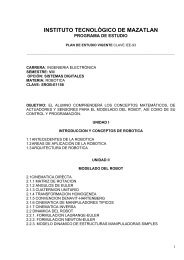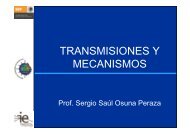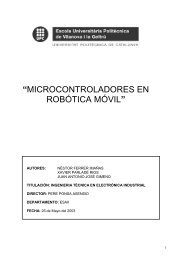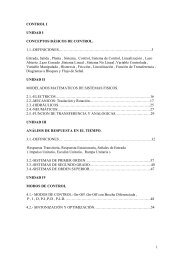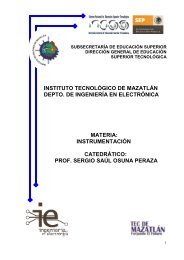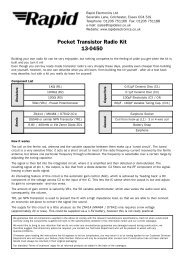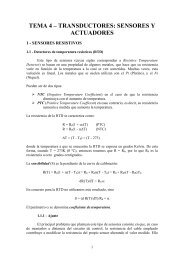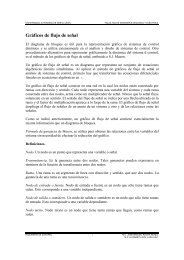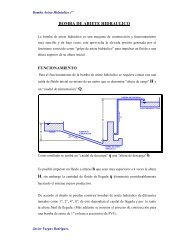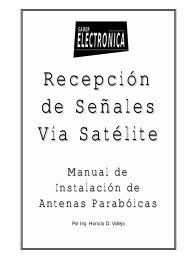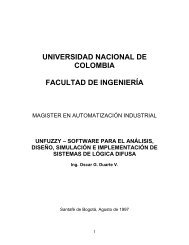Electric Elves 107intervening, leading to 152 cases of user-prompted rescheduling, indicating thecritical importance of AA in Friday agents.The general effectiveness of E-Elves is shown by several observations. Sincethe E-Elves deployment, the group members have exchanged very few emailmessages to announce meeting delays. Instead, Fridays autonomously informusers of delays, thus reducing the overhead of waiting for delayed members.Second, the overhead of sending emails to recruit and announce a presenter forresearch meetings is now assumed by agent-run auctions. Third, the PeopleLocator is commonly used to avoid the overhead of trying to manually trackusers down. Fourth, mobile devices keep us informed remotely of changes inour schedules, while also enabling us to remotely delay meetings, volunteer forpresentations, order meals, etc. We have begun relying on Friday so heavily toorder lunch that one local Subway restaurant owner even suggested marketingto agents: “More and more computers are getting to order food, so we mighthave to think about marketing to them!!”Most importantly, over the entire span of the E-Elves’ operation, the agentshave never repeated any of the catastrophic mistakes that Section 3 enumeratedin its discussion of our preliminary decision-tree implementation. Forinstance, the agents do not commit error 4 from Section 3 because of the domainknowledge encoded in the bid-for-role MDP that specifies a very high costfor erroneously volunteering the user for a presentation. Likewise, the agentsnever committed errors 1 or 2. The policy described in Section 4 illustrates howthe agents would first ask the user and then try delaying the meeting, beforetaking any final cancellation actions. The MDP’s lookahead capability alsoprevents the agents from committing error 3, since they can see that makingone large delay is preferable, in the long run, to potentially executing severalsmall delays. Although the current agents do occasionally make mistakes, theseerrors are typically on the order of asking the user for input a few minutes earlierthan may be necessary, etc. Thus, the agents’ decisions have been reasonable,though not always optimal. Unfortunately, the inherent subjectivity in userfeedback makes a determination of optimality difficult.6. ConclusionGaining a fundamental understanding of AA is critical if we are to deploymulti-agent systems in support of critical human activities in real-world settings.Indeed, living and working with the E-Elves has convinced us that AAis a critical part of any human collaboration software. Because of the negativeresult from our initial C4.5-based approach, we realized that such real-world,multi-agent environments as E-Elves introduce novel challenges in AA thatprevious work has not addressed. For resolving the AA coordination challenge,our E-Elves agents explicitly reason about the costs of team miscoordination,
108 Socially Intelligent Agentsthey flexibly transfer autonomy rather than rigidly committing to initial decisions,and they may change the coordination rather than taking risky actions inuncertain states. We have implemented our ideas in the E-Elves system usingMDPs, and our AA implementation nows plays a central role in the successful24/7 deployment of E-Elves in our group. Its success in the diverse tasks ofthat domain demonstrates the promise that our framework holds for the widerange of multi-agent domains for which AA is critical.AcknowledgmentsThis research was supported by DARPA award No. F30602-98-2-0108 (Control of Agent-Based Systems) and managed by ARFL/Rome Research Site.References[1] Chalupsky, H., Gil, Y., Knoblock, C. A., Lerman, K., Oh, J., Pynadath, D. V., Russ, T. A.,and Tambe, M. Electric elves: Applying agent technology to support human organizations.In Proc. of the IAAI. Conf., 2001.[2] Collins, J., Bilot, C., Gini, M., and Mobasher, B. Mixed-init. dec.-supp. in agent-basedauto. contracting. In Proc. of the Conf. on Auto. Agents, 2000.[3] Dorais, G. A., Bonasso, R. P., Kortenkamp, D., Pell, B., and Schreckenghost, D. Adjustableautonomy for human-centered autonomous systems on mars. In Proc. of the Intn’l Conf.of the Mars Soc., 1998.[4] Ferguson, G., Allen, J., and Miller, B. TRAINS-95 : Towards a mixed init. plann. asst. InProc. of the Conf. on Art. Intell. Plann. Sys., pp. 70–77.[5] Horvitz, E., Jacobs, A., and Hovel, D. Attention-sensitive alerting. In Proc. of the Conf.on Uncertainty and Art. Intell., pp. 305–313, 1999.[6] Lesser, V., Atighetchi, M., Benyo, B., Horling, B., Raja, A., Vincent, R., Wagner, T., Xuan,P., and Zhang, S. X. A multi-agent system for intelligent environment control. In Proc.of the Conf. on Auto. Agents, 1994.[7] Mitchell, T., Caruana, R., Freitag, D., McDermott, J., and Zabowski, D. Exp. with alearning personal asst. Comm. of the ACM, 37(7):81–91, 1994.[8] Puterman, M. L. Markov Decision Processes. John Wiley & Sons, 1994.[9] Quinlan, J. R. C4.5: Progs. for Mach. Learn. Morgan Kaufmann, 1993.[10] Scerri, P., Pynadath, D. V., and Tambe, M. Adjustable autonomy in real-world multi-agentenvironments. In Proc. of the Conf. on Auto. Agents, 2001.[11] Tambe, M., Pynadath, D. V., Chauvat, N., Das, A., and Kaminka, G. A. Adaptive agentintegration architectures for heterogeneous team members. In Proc. of the Intn’l Conf. onMultiAgent Sys., pp. 301–308, 2000.[12] Tollmar, K., Sandor, O., and Schōmer, A. Supp. soc. awareness: @Work design & experience.In Proc. of the ACM Conf. on CSCW, pp. 298–307, 1996.
- Page 2 and 3:
SOCIALLY INTELLIGENT AGENTSCreating
- Page 4 and 5:
SOCIALLY INTELLIGENT AGENTSCreating
- Page 6 and 7:
ContentsContributing Authors1Social
- Page 8 and 9:
Contents21Experiences with Sparky,
- Page 10 and 11:
Contributing AuthorsAude BillardCom
- Page 12 and 13:
Contributing AuthorsxiPeyman Farati
- Page 14 and 15:
Contributing AuthorsxiiiBernard Ogd
- Page 16:
Contributing AuthorsxvNell TenhaafD
- Page 19 and 20:
2 Socially Intelligent AgentsFigure
- Page 21 and 22:
4 Socially Intelligent AgentsFigure
- Page 23 and 24:
6 Socially Intelligent Agentsthe ag
- Page 25 and 26:
8 Socially Intelligent AgentsThis r
- Page 27 and 28:
10 Socially Intelligent Agentstrack
- Page 29 and 30:
12 Socially Intelligent Agentsintel
- Page 31 and 32:
14 Socially Intelligent Agentsof a
- Page 33 and 34:
16 Socially Intelligent AgentsIn ch
- Page 35 and 36:
18 Socially Intelligent AgentsFigur
- Page 37 and 38:
20 Socially Intelligent Agents[8] P
- Page 39 and 40:
22 Socially Intelligent Agentscontr
- Page 42 and 43:
Understanding Social Intelligence 2
- Page 44 and 45:
Understanding Social Intelligence 2
- Page 46 and 47:
Chapter 3MODELING SOCIAL RELATIONSH
- Page 48 and 49:
Modeling Social Relationship 31soci
- Page 50 and 51:
Modeling Social Relationship 33Figu
- Page 52 and 53:
Modeling Social Relationship 35seco
- Page 54 and 55:
Chapter 4DEVELOPING AGENTS WHO CANR
- Page 56 and 57:
Developing Agents Who Can Relate to
- Page 58 and 59:
Developing Agents Who Can Relate to
- Page 60 and 61:
Developing Agents Who Can Relate to
- Page 62 and 63:
Chapter 5PARTY HOSTS AND TOUR GUIDE
- Page 64 and 65:
Party Hosts and Tour Guides 47conve
- Page 66 and 67:
Party Hosts and Tour Guides 492.2 E
- Page 68 and 69:
Party Hosts and Tour Guides 514. Co
- Page 70 and 71:
Chapter 6INCREASING SIA ARCHITECTUR
- Page 72 and 73:
Adapting to Affect and Personality
- Page 74 and 75: Adapting to Affect and Personality
- Page 76 and 77: Adapting to Affect and Personality
- Page 78 and 79: Chapter 7COOPERATIVE INTERFACE AGEN
- Page 80 and 81: Cooperative Interface Agents 63cult
- Page 82 and 83: Cooperative Interface Agents 65will
- Page 84 and 85: Cooperative Interface Agents 67make
- Page 86 and 87: Chapter 8PLAYING THE EMOTION GAME W
- Page 88 and 89: Playing the Emotion Game with Feeli
- Page 90 and 91: Playing the Emotion Game with Feeli
- Page 92 and 93: Playing the Emotion Game with Feeli
- Page 94 and 95: Chapter 9CREATING EMOTION RECOGNITI
- Page 96 and 97: Emotion Recognition Agents for Spee
- Page 98 and 99: Emotion Recognition Agents for Spee
- Page 100 and 101: Emotion Recognition Agents for Spee
- Page 102 and 103: Chapter 10SOCIAL INTELLIGENCE FOR C
- Page 104 and 105: Social Intelligence for Computers 8
- Page 106 and 107: Social Intelligence for Computers 8
- Page 108 and 109: Social Intelligence for Computers 9
- Page 110 and 111: Chapter 11EGOCHAT AGENTA Talking Vi
- Page 112 and 113: EgoChat Agent 95that members in a g
- Page 114 and 115: EgoChat Agent 97virtualized-ego(A)v
- Page 116 and 117: EgoChat Agent 99apply EgoChat to a
- Page 118 and 119: Chapter 12ELECTRIC ELVESAdjustable
- Page 120 and 121: Electric Elves 103user in the agent
- Page 122 and 123: Electric Elves 105The delay MDP rea
- Page 126 and 127: Chapter 13BUILDING EMPIRICALLY PLAU
- Page 128 and 129: Building Empirically Plausible MAS
- Page 130 and 131: Building Empirically Plausible MAS
- Page 132 and 133: Building Empirically Plausible MAS
- Page 134 and 135: Chapter 14ROBOTIC PLAYMATESAnalysin
- Page 136 and 137: Analysing Interactive Competencies
- Page 138 and 139: Analysing Interactive Competencies
- Page 140 and 141: Analysing Interactive Competencies
- Page 142 and 143: Chapter 15MOBILE ROBOTIC TOYS AND A
- Page 144 and 145: Mobile Robotic Toys and Autism 127m
- Page 146 and 147: Mobile Robotic Toys and Autism 129F
- Page 148 and 149: Mobile Robotic Toys and Autism 131p
- Page 150 and 151: Chapter 16AFFECTIVE SOCIAL QUESTEmo
- Page 152 and 153: Affective Social Quest 135Figure 16
- Page 154 and 155: Affective Social Quest 137tion is t
- Page 156 and 157: Affective Social Quest 139parents w
- Page 158 and 159: Chapter 17PEDAGOGICAL SOAPSocially
- Page 160 and 161: Pedagogical Soap 1432. IPD Backgrou
- Page 162 and 163: Pedagogical Soap 145EmotionalApprai
- Page 164 and 165: Pedagogical Soap 147trol their chil
- Page 166 and 167: Chapter 18DESIGNING SOCIABLE MACHIN
- Page 168 and 169: Designing Sociable Machines 151Sens
- Page 170 and 171: Designing Sociable Machines 153crit
- Page 172 and 173: Designing Sociable Machines 155qual
- Page 174 and 175:
Chapter 19INFANOIDA Babybot that Ex
- Page 176 and 177:
Infanoid 159— are arranged in a 4
- Page 178 and 179:
Infanoid 161subset of the environme
- Page 180 and 181:
Infanoid 163To explain the origin o
- Page 182 and 183:
Chapter 20PLAY, DREAMS AND IMITATIO
- Page 184 and 185:
Play, Dreams and Imitation in Robot
- Page 186 and 187:
Play, Dreams and Imitation in Robot
- Page 188 and 189:
Play, Dreams and Imitation in Robot
- Page 190 and 191:
Chapter 21EXPERIENCES WITH SPARKY,
- Page 192 and 193:
Experiences with Sparky, a Social R
- Page 194 and 195:
Experiences with Sparky, a Social R
- Page 196 and 197:
Experiences with Sparky, a Social R
- Page 198 and 199:
Chapter 22SOCIALLY SITUATED PLANNIN
- Page 200 and 201:
Socially Situated Planning 183will
- Page 202 and 203:
Socially Situated Planning 185chang
- Page 204 and 205:
Socially Situated Planning 187of pl
- Page 206 and 207:
Chapter 23DESIGNING FOR INTERACTION
- Page 208 and 209:
Designing for Interaction 191force
- Page 210 and 211:
Designing for Interaction 193ment b
- Page 212 and 213:
Designing for Interaction 195ductio
- Page 214 and 215:
Chapter 24ME, MY CHARACTER AND THE
- Page 216 and 217:
Me, My Character and the Others 199
- Page 218 and 219:
Me, My Character and the Others 201
- Page 220 and 221:
Me, My Character and the Others 203
- Page 222 and 223:
Chapter 25FROM PETS TO STORYROOMSCo
- Page 224 and 225:
From PETS to StoryRooms 2074. A Sto
- Page 226 and 227:
From PETS to StoryRooms 209realized
- Page 228 and 229:
From PETS to StoryRooms 211own Stor
- Page 230 and 231:
Chapter 26SOCIALLY INTELLIGENT AGEN
- Page 232 and 233:
Socially Intelligent Agents in Educ
- Page 234 and 235:
Socially Intelligent Agents in Educ
- Page 236 and 237:
Socially Intelligent Agents in Educ
- Page 238 and 239:
Chapter 27TOWARDS INTEGRATING PLOT
- Page 240 and 241:
Towards Integrating Plot and Charac
- Page 242 and 243:
Towards Integrating Plot and Charac
- Page 244 and 245:
Towards Integrating Plot and Charac
- Page 246 and 247:
Chapter 28THE COOPERATIVE CONTRACTI
- Page 248 and 249:
The Cooperative Contract 231relies
- Page 250 and 251:
The Cooperative Contract 233To supp
- Page 252 and 253:
Chapter 29PERCEPTIONS OF SELF IN AR
- Page 254 and 255:
Perceptions of Self 237semination o
- Page 256 and 257:
Perceptions of Self 239Figure 29.1.
- Page 258 and 259:
Perceptions of Self 241human senses
- Page 260 and 261:
Chapter 30MULTI-AGENT CONTRACT NEGO
- Page 262 and 263:
Multi-Agent Contract Negotiation 24
- Page 264 and 265:
Multi-Agent Contract Negotiation 24
- Page 266 and 267:
Multi-Agent Contract Negotiation 24
- Page 268 and 269:
Chapter 31CHALLENGES IN AGENT BASED
- Page 270 and 271:
Challenges in ABSS of Negotiation 2
- Page 272 and 273:
Challenges in ABSS of Negotiation 2
- Page 274 and 275:
Challenges in ABSS of Negotiation 2
- Page 276 and 277:
Chapter 32ENABLING OPEN AGENT INSTI
- Page 278 and 279:
Enabling Open Agent Institutions 26
- Page 280 and 281:
Enabling Open Agent Institutions 26
- Page 282 and 283:
Enabling Open Agent Institutions 26
- Page 284 and 285:
Chapter 33EMBODIED CONVERSATIONAL A
- Page 286 and 287:
ECA’s In E-Commerce Applications
- Page 288 and 289:
ECA’s In E-Commerce Applications
- Page 290 and 291:
ECA’s In E-Commerce Applications
- Page 292 and 293:
Index"like-me" test 85,89“Giant3
- Page 294 and 295:
INDEX 277educational computer games
- Page 296 and 297:
INDEX 279mutual selection 243mutual
- Page 298:
INDEX 281theory of dramatic writing



